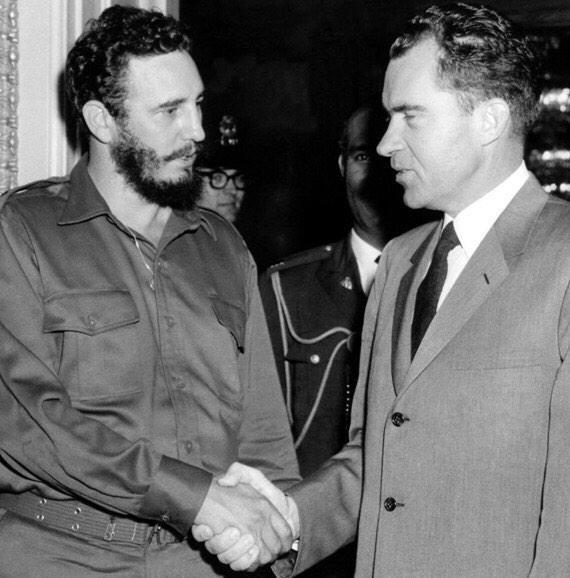
Castro's visit was rather controversial because he faced skepticism from many in the U.S. He was asked about the promised elections that were delayed and delayed.
Castro was also beginning to hear a lot of criticism from fellow Cubans who kept asking about the surplus of communists and shortage of reforms.
Finally, President Dwight D. Eisenhower did not meet with him, but V.P. Richard Nixon did.
After the meeting, V.P. Nixon said that his bearded visitor was "either incredibly naive about communism or under communist discipline — my guess is the former."
Castro also appeared on Meet the Press and denied that he was a communist. He even joked about it, saying some people thought Adam and Eve were communists.
Furthermore, Castro benefited from a lot of people in the U.S. who were caught up in the cult of personality and did not know the truth of pre-Castro Cuba. It's easy to fall for the narrative when you don't know about the large middle class in Cuba and the number of immigrants who had flooded Cuba in the first half of the 20th century. They came to Cuba because the island offered opportunities, or the exact opposite of "Cuba is all about casinos" that was peddled to justify what they called revolution.
As my late father used to say when he got questions about casinos, "we had a lot more home-grown prosperity than casinos!" He should know, because he worked for one of five Cuban-owned banks that operated all over the country.
Down on the island, Castro continued to deny that he was a communist and put people in jail for accusing him of that. In December 1961, eight months after the failed Bay of Pigs invasion, he declared his allegiance to Marxism-Leninism, and our worst fears were realized.